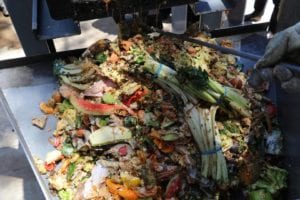The 10x20x30 is a global initiative aimed at mobilising 10 of the world’s largest food retailers to engage with at least 20 of their food suppliers to reduce food waste by 50% by 2030.
The 10x20x30 initiative is directly derived from the Sustainable Development Goal 12.3: By 2030, halve per capita global food waste at the retail and consumer levels and reduce food losses along production and supply chains, including post-harvest losses. In South Africa, we already have a commitment from some of our major food retailers and brands to reduce their food waste by 50% along their supply chains by 2025. Furthermore, working with the government, the Consumer Good Council launched the South African Food Loss and Waste Voluntary Agreement to support 10x20x30 with reducing food loss and waste by 50% by 2030. To achieve a 50% reduction by 2030, retailers will have to take swift action at a production and store level. In South Africa, up to 30% of agricultural production is wasted before the food surplus reaches the consumer stage.“Along with these voluntary agreements, there have been increased mandatory regulations,” says Brian Küsel, director at BiobiN South Africa.
“National and most provincial governments are aiming for a complete organic waste landfill diversion by 2027; meaning that industry will have to look at alternative waste management solutions like composting.” Two initiatives will assist retailers in reducing food loss and waste; redistribution of the edible food surplus that does not reach a store level and a waste management solution to create a circular economy for inedible food waste. “BiobiN has deployed on-site commercial composting units to in-take large volumes of food waste generated at a store level. On-site composting diverts the inedible volumes of food waste, keeping it out of the landfill, and creates a ‘secondary resource.’,” says Küsel. Compost, the secondary resource created by our BiobiN units, falls directly within the recommended initiatives to reduce food waste and prevent the environmental and climate impacts of landfilling food waste.





